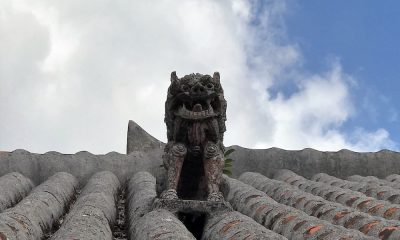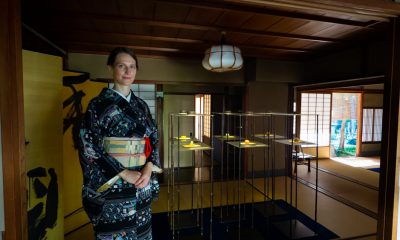Feature
My Number: What should I know?
KS caught up with Naoki Maekawa from Shinmei Law to talk about the ins and outs of the new My Number system, and what it means for expats living in Japan.
By now you should have received your ‘My Number’ via registered mail (don’t lose that vital paper card!), and with the new system going into effect from this month, your next question might be, “What’s up with that?”
In a nutshell, any person residing in Japan for more than three months was, or will be, given a lifelong number for social security and tax purposes. Each resident’s My Number has already been issued by the Japanese government – no choice there – but getting the plastic ID card (containing your photo and an IC chip) from your municipal office is entirely optional. The only thing you must do at this time is supply your My Number to your employer(s), who need it for tax reporting this spring. However, we were curious to find out a little more, so we sat down with Naoki Maekawa from Shinmei Law to ask a few more questions.
Can my employer find out about my other jobs by the My Number system?
No. Employers are not entitled to access any information connected to a specific My Number.
Will I have to declare my assets in my home country, or in another country?
In the near future, the government wants to gather all information relating to the financial assets for anyone with a My Number, to gain increased taxation income. However, it is unclear how the Japanese government would have the means to gather all the information concerning one individual – particularly when it comes to foreigners.
The government is using My Numbers to connect information about each individual, and will ask financial institutions, at least in Japan, to give information about who holds accounts with them. However, Japanese law is not always applicable for foreign-based companies and there is no practical way of getting connected with the information systems of other countries. So the declaring of all assets issue is more of a concern for Japanese people than for expats living in Japan.
What groups in particular in Japan are concerned about assets declaration?
Particularly elderly people living on the base income. A lot of elderly people have a substantial amount of assets in the form of real estate, or financial shares in stocks. If the government can gather such information, it may restrict these elderly people from being granted certain services from the government and municipalities, like use of any public services for free or at reduced cost, because their assets may result in them being recognized as wealthy.
Will I be forced to join the national health and pension system if I haven’t already joined?
Even though everyone living in Japan is supposed to have joined the health and pension system, people won’t be forced to join if they have not already joined. The My Number is for convenience on the government’s side, so people’s daily living won’t be affected. The government wants to reduce the cost and inconvenience of having a lot of different information registered about people in separate locations. They want to get it all together, and in doing so, they hope to reduce the cost of controlling and managing information for individuals and corporations. It doesn’t matter whether you’ve already joined the social welfare system in Japan or not. The main thing you need to worry about with regard to My Number is the privacy of your information.
What privacy concerns are there?
Recently there has been huge controversy on this topic because of invasion of privacy issues. A few incidents have occurred where public officials engaged in the social welfare ministry have been bribed in exchange for contracts to develop software systems for the government. Some lawyers are planning to sue the government, saying My Number is against the Japanese Constitution. I am afraid they are unlikely to win, but it shows that there are big issues concerning privacy.
Everybody should be highly aware of scams asking for their My Number. Again, the elderly are the most vulnerable with regard this. However, everyone should be aware not to disclose their My Number to a third party without a valid reason. If you are required to give your My Number to a third party, you will be required (by public officers) to show your My Number card as well as an additional ID card. Police Officers won’t ask you to show your My Number card. The only people you should ever give your my number to are your employer, the ward office, social welfare services, and the tax office.
I’m not sure whether to get the plastic My Number card or not – should I do this?
It can be used as a form of ID lieu of your current residential card, so it is convenient if you are requiring ID somewhere and for some reason don’t have your residence card. However, although that could be convenient at times, it may not always be wise to use it as a source of ID because the number is shown on the card, which makes it pretty risky.
Is there anything in particular I have to worry about if I am a business owner/employer in Japan?
Yes. It falls to individual employers to handle the My Numbers issued to individual employees and they will be obliged to control and manage such information with the highest care, so if it’s leaked, the employer will be punished. The My Numbers have to be kept secret from a third party, which could be quite a heavy burden. Of course, you are already obliged to keep certain information about your employees private, but after the My Number is implemented it’s legally burdensome, and there are further-reaching consequences if you let My Numbers get into the wrong hands.
Call Center
Call 0570-20-0291 to reach the call center for the Social Security and Tax Number System.
The call center takes inquiries in Japanese, English, Korean, Spanish, and Portuguese.
Naoki Maekawa
shinmei-law.com/e
english@shinmei-law.com













